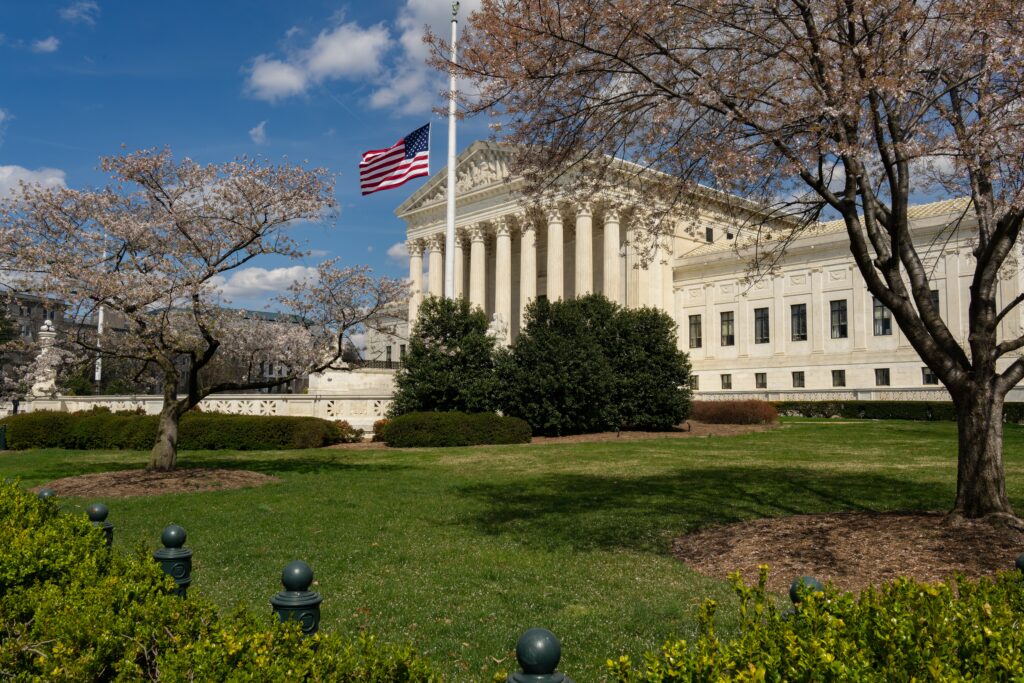Latest LGBTQ legal defeat had ‘no basis in reality’: Report
The Supreme Court ruled in favor of a Christian web designer who refused to work for a gay man on his wedding, but the man cited in the case said he never requested the services and isn’t gay.
A Christian Colorado web designer who the U.S. Supreme Court ruled on Friday could refuse to make wedding websites for gay couples cited a request from a man who says he never asked to work with her, according to the Associated Press.
The request, from a person identified as “Stewart,” was not the basis for the federal lawsuit filed seven years ago by Christian, Colorado-based web designer Lorie Smith, before she started making wedding websites. But as the case advanced, it became part of the evidence submitted by her lawyers when the state of Colorado asked Smith to provide sufficient grounds for her lawsuit.
And so Smith named “Stewart,” and included a website service request from him, his phone number and email address in her 2017 court documents. Stewart told The Associated Press he did not submit the request and didn’t know his name was cited in the lawsuit until he was contacted this week by the press.
“I was incredibly surprised given the fact that I’ve been happily married to a woman for the last 15 years,” said Stewart, who withheld his last name from AP out of fear of retribution. He told the newswire that he was concerned no one had checked into the validity of the evidence submitted by Smith until recently.
And Colorado Attorney General Phil Weiser has called the lawsuit a “made up case” because Smith wasn’t even offering wedding website services when the suit was filed.
Smith’s lawyer, Kristen Waggoner, told a news conference that the wedding request naming Stewart was submitted through Smith’s website and denied it was fake, suggesting that perhaps a troll had made the request. In 2018, Waggoner’s client Colorado baker Jack Phillips won a partial U.S. Supreme Court victory after refusing to make a gay couple’s wedding cake.
Mr Weiser said the nation’s highest court should not have addressed the lawsuit’s merits “without any basis in reality.”
It comes as the Supreme Court ruling was widely condemned by LGBTQ+ and civil rights groups as another example of religious freedom being used to spread anti-LGBTQ+ discrimination.
Religious equality organization American Atheists condemned the Supreme Court’s 6–3 ruling in 303 Creative LLC v. Elenis, allowing Smith to discriminate against same-sex couples in the creation and sale of wedding websites.
“This disastrous decision puts business owners’ religious beliefs above the basic human dignity of LGBTQ people and other vulnerable groups,” said Geoffrey T. Blackwell, Litigation Counsel for American Atheists.
“Fifty years ago, the Court rejected the argument that the free speech rights of bigots trump nondiscrimination laws,” added Blackwell, referencing the 1976 case, Runyon v. McCrary, which upheld civil rights laws prohibiting racial discrimination. “Protections against racial, religious, and gender discrimination are all at grave risk after today’s decision. This corrupt Court is dismantling decades of hard-won advances.”
Smith claimed she would face punishment for her opposition to gay marriage because the Colorado Anti-Discrimination Act requires that her business, a public accommodation, provide the same services to all people and treat all couples with the same level of dignity and respect.
The Williams Institute points out that the ruling is particularly important for the nearly 7 million LGBT people ages 13+ who live in states with statutes that provide non-discrimination protections in public accommodations for LGBT people.
“The Supreme Court’s decision today firmly establishes an exemption to anti-discrimination laws,” said Elana Redfield, Federal Policy Director at the Williams Institute. “If a service is ‘expressive’—which the court finds a wedding website to be—a business may now deny that service in some circumstances, even if it harms LGBT people or other protected groups.”






